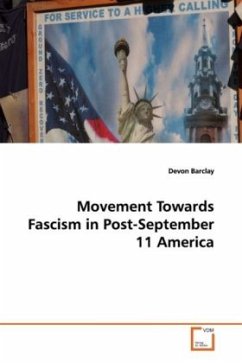
Analysis of Oppositional Frames in Evaluating Movement Success
National and Local Debates Over Sex Education Programming
Versandkostenfrei!
Versandfertig in 6-10 Tagen
32,99 €
inkl. MwSt.

PAYBACK Punkte
16 °P sammeln!
Social movement scholars have utilized framing theory over the past couple of decades to explain how it is that movement actors effectively activate support and advance policy goals. Historically, framing scholarship has overwhelmingly been premised on empirical work that attempts to measure the success or failure of a particular movement or social movement organization in achieving its goals. This work often exists in a vacuum, failing to look at how the framing strategies of one movement come into contact with the framing strategies of an oppositional movement. Through an analysis of two deb...
Social movement scholars have utilized framing theory over the past couple of decades to explain how it is that movement actors effectively activate support and advance policy goals. Historically, framing scholarship has overwhelmingly been premised on empirical work that attempts to measure the success or failure of a particular movement or social movement organization in achieving its goals. This work often exists in a vacuum, failing to look at how the framing strategies of one movement come into contact with the framing strategies of an oppositional movement. Through an analysis of two debates over sex education programming that occurred in the US between 2001 and 2008, this work addresses this methodological oversight by analyzing the ways in which frames take on meaning when oppositional movements are studied in tandem. When framing processes are understood in the deeper context provided by looking at oppositional movements together, social movement scholars will be better able to identify the ways in which particular framing strategies lead to public support of, and policy success for, a movement and its goals.












